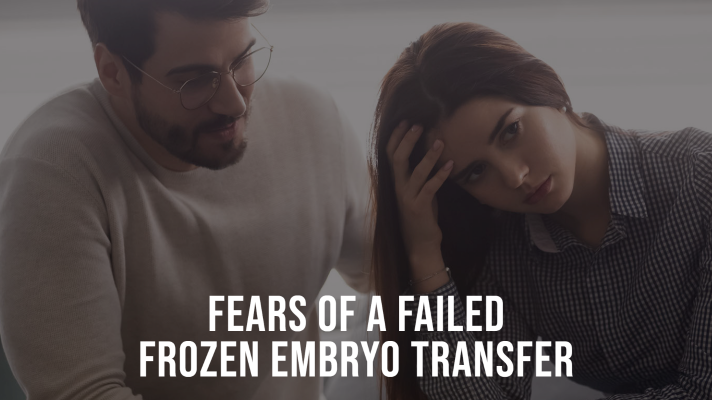The day is finally here: Transfer Day. You have waited a long time to finally transfer your adopted embryos and give them a chance at life. You leave the fertility clinic filled with hopes and future plans for your new little one. Just over a week later, you head back to the doctors to test hormone levels. And you receive the dreaded news: negative. You’re not pregnant.
“How could this happen? I spent weeks prepping My body for the transfer, and months before with doctor appointments and fertility tests. Did the embryos go “bad?” Is there something wrong with my ability to carry a pregnancy?”
Unsuccessful frozen embryo transfers (or FETs) are more common than people think. Women 35 years and younger have a 60 percent chance of pregnancy per transfer. This means 40% of the time, the embryos do not implant. There are several reasons why this could happen: a thin uterine lining, an unexpected ovulation, fluid in the uterine cavity, or just simply an unknown reason (the most common reason).
Whatever the cause, a failed FET is hard news to hear—one of the most feared risks of embryo adoption. So, what should one do after hearing the news?
First, you should cry, sob, and grieve. Even though you knew it may not work, everyone thinks they are the exception to the statistic. It’s okay to be sad; it’s okay to cry. Take the time you need to cope with the loss.
Next, you should speak with your fertility doctor. You will have a follow up appointment scheduled shortly after the negative test. They will be able to shed a little bit more light onto why they think the FET was unsuccessful.
Then, you should give yourself some time to think. You (and your partner) need to think and talk about your next steps. Should you try another FET with any remaining embryos right away or take a few months for a break? Are there other things your fertility doctor suggested you try to make your next transfer more successful? Should you speak with other families who have done through the same experience? What was their outcome?
It’s a fact: embryo adoption is not a guarantee of pregnancy. Many couples who have chosen embryo adoption have experienced one or two (or even three) failed FETs before they finally have success. You are not alone.
To learn more about embryo donation or adoption, visit EmbryoAdoption.org.


Recent Comments